World Field Epidemiology Day 2022: Empowering Field Epidemiologists for Stronger Health Systems
World Field Epidemiology Day is a global movement that recognises and raises awareness of field epidemiology.
Date & time
Date/time
7 Sep 2022 9:00am - 7 Sep 2022 12:30pm
Speaker
Speakers
Professor Hilary Bambrick
Professor Tony Stewart
Dr Stephanie Williams
Dr Angela Merianos
Contact
Content navigation
RegisterDescription
Image

World Field Epidemiology Day is a global movement that recognises and raises awareness of field epidemiology. At ANU, we are celebrating the vital role field epidemiologists play in protecting population health and advancing global health security with a conference discussing this year’s theme: Empowering Field Epidemiologists for Stronger Health Systems.

Join us, the Master of Applied Epidemiology (MAE) team, as we look back and celebrate 31 years of impact while looking to the future. Hear from esteemed graduates, learn about the work of current students, re-connect with friends, and network with your peers.
We have a lineup of outstanding speakers that will share their stories from the field to highlight the importance of field epidemiology in strengthening public health systems worldwide to better detect and respond to outbreaks.
| Time | Topic | Speaker |
| 9:00-9:10 am | Welcome to Country | Ngunnawal Elder |
| 9:10-9:15 am | Welcome | Professor Hilary Bambrick |
| 9:15-9:30 am | MAE Program – Future Directions | Professor Tony Stewart |
| 9:30-9:45 am | MAE Alumni Presentation Title: Indo-Pacific Centre for Health Security |
Dr Stephanie Williams |
| 9:45-10:00 am |
MAE Alumni Presentation Title: Something strange this way comes |
Dr Angela Merianos Team Coordinator, Pacific Health Security and Communicable Diseases, WHO/WPRO Division of Pacific Technical Support |
| 10:00-10:15 am | MAE Alumni Presentation Title: Working in the evolving field of genomic epidemiology |
Dr Patiyan Andersson |
| 10:15-10:30 am |
MAE Alumni Presentation Title: Always alert, but not alarmed |
April Roberts-Witteveen |
| 10:30-11:00 am | Morning tea | |
| Student Presentations | Student Name and Cohort | |
| 11:00-11:15 am | Presentation Title: Potential Impact of a social media post in 2019 on rabies post-exposure prophylaxis (PEP) at Institut Pasteur du Cambodge (IPC), Cambodia | Malen Chan (2022) |
| 11:15-11:30 am | Presentation Title: Using Bayesian Network modelling to predict risk of death due to COVID-19 in adults and estimate the potential benefits of antiviral and adjuvant therapies | Ramona Muttucumaru (2022) |
| 11:30-11:45 am | Presentation Title: Trends in Antibiotic Resistant Non Typhoidal Salmonella in New South Wales 2016-2022 | Patrick Peacock (2022) |
| 11:45-12:00 pm | Presentation Title: Post-pandemic re-emergence of influenza in Victoria, Australia | Catherine Pendrey (2022) |
| 12:00-12:30 pm | Panel Discussion: How does the MAE intersect with an Australian Centres for Disease Control and Prevention? | Professor Paul Kelly, Professor Bob Douglas, and others TBC. |
Bios
Professor Hilary Bambrick
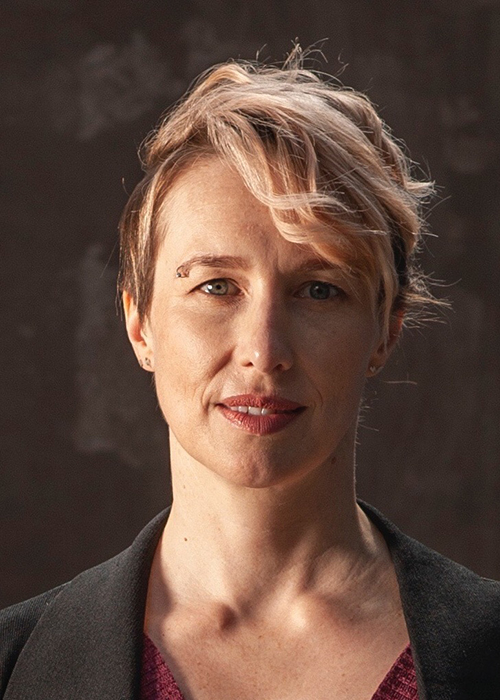
Hilary is Director of the National Centre for Epidemiology and Population Health at the Australian National University in Ngunnawal and Ngambri Country (Canberra). She is an environmental epidemiologist and bioanthropologist researching the health impacts of global heating, especially on more vulnerable populations, and has expertise in the development, implementation and evaluation of adaptation strategies.
She has consulted for WHO and UNDP on climate adaptation strategies for health, and she led the health impacts assessment for Australia’s national climate change review (The Garnaut Review, 2008) and previously worked as the Head of the School of Public Health and Social Work at Queensland University of Technology (QUT).
Professor Tony Stewart

Tony Stewart is the MAE Director. He graduated as part of the first cohort (1991-1993) and has been involved with the program and the global FETP ever since. After graduating from the MAE he worked with the Burnet Institute based in Indonesia on immunisation and maternal and child health projects; and with the Secretariat of the Pacific Community on pandemic preparedness and vector borne diseases.
From 2014-2020 he worked with WHO’s Global Outbreak Alert and Response Network (GOARN) and the WHO Health Emergencies Program, on responses to Ebola in West Africa, Zika, the Rohingya refugee crises in Cox Bazar and other events.
Dr Stephanie Williams
 Dr Stephanie Williams was appointed as Australia’s Ambassador for Regional Health Security in March 2020. As Ambassador, Dr Williams supports the advancement of Australia’s interests in the Indo-Pacific by fostering linkages between Australia’s world-class public health and medical research experts and partners in the region. In addition, she guides the implementation of the $300 million Health Security Initiative for the Indo-Pacific region.
Dr Stephanie Williams was appointed as Australia’s Ambassador for Regional Health Security in March 2020. As Ambassador, Dr Williams supports the advancement of Australia’s interests in the Indo-Pacific by fostering linkages between Australia’s world-class public health and medical research experts and partners in the region. In addition, she guides the implementation of the $300 million Health Security Initiative for the Indo-Pacific region.Dr Williams is a Public Health Physician and Epidemiologist, who has been DFAT’s Principal Health Specialist since 2017. Prior to joining DFAT, Dr Williams was a Medical Adviser in the Office of Health Protection in the Australian Government Department of Health. Her previous roles include: Public Health Registrar for Victoria’s Chief Health Officer; Epidemiologist in Global Health Security for the World Health Organization (WHO); and a medical doctor for Medicines Sans Frontières and the WHO.
Professor Paul Kelly
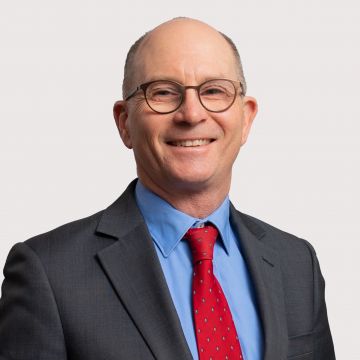 Professor Paul Kelly is a public health physician and epidemiologist with more than 30 years’ research experience. He has worked around the world in health system development and infectious disease epidemiology.
Professor Paul Kelly is a public health physician and epidemiologist with more than 30 years’ research experience. He has worked around the world in health system development and infectious disease epidemiology.Paul was one of the leads in developing the FluCAN project – a national influenza surveillance system used by hospitals to track patients who are hospitalised with influenza. This work helps to determine the effectiveness of the yearly influenza vaccine.
Professor Bob Douglas
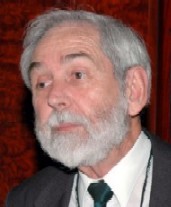 Emeritus Professor Bob Douglas AO is a graduate and former Dean of The Adelaide medical school, who spent the early part of his career as an epidemiologist working on the treatment and prevention of early childhood pneumonia. In 1989 he became the founding director of the National Centre for Epidemiology and Population Health at the ANU where he developed the MAE program in collaboration with The US Centres for Disease Control. Since his retirement in 2001, he has been involved in the development and operation of Australia 21, SEE-Change ACT, The Canberra Alliance for Participatory Democracy and The Council for The Human Future.
Emeritus Professor Bob Douglas AO is a graduate and former Dean of The Adelaide medical school, who spent the early part of his career as an epidemiologist working on the treatment and prevention of early childhood pneumonia. In 1989 he became the founding director of the National Centre for Epidemiology and Population Health at the ANU where he developed the MAE program in collaboration with The US Centres for Disease Control. Since his retirement in 2001, he has been involved in the development and operation of Australia 21, SEE-Change ACT, The Canberra Alliance for Participatory Democracy and The Council for The Human Future.Dr Angela Merianos
 MBBS (UNSW), MPH (USyd), MAE first cohort, field placement Darwin CDC. Has worked at local PHA, state and territory and Commonwealth health levels. Joined WHO in 2003. Was the Geneva based Coordinator for global SARS epidemiology. Also worked on the H1N1 influenza pandemic.
MBBS (UNSW), MPH (USyd), MAE first cohort, field placement Darwin CDC. Has worked at local PHA, state and territory and Commonwealth health levels. Joined WHO in 2003. Was the Geneva based Coordinator for global SARS epidemiology. Also worked on the H1N1 influenza pandemic.In 2015, joined the WHO/WPRO Division of Pacific Technical Support as Team Coordinator, Health Security, Communicable Diseases and Climate Change with notable outbreaks of Zika virus, meningococcal meningitis (Fiji), measles (Fiji and Samoa), and COVID-19. Retired from WHO in Feb 2022.
April Roberts-Witteveen
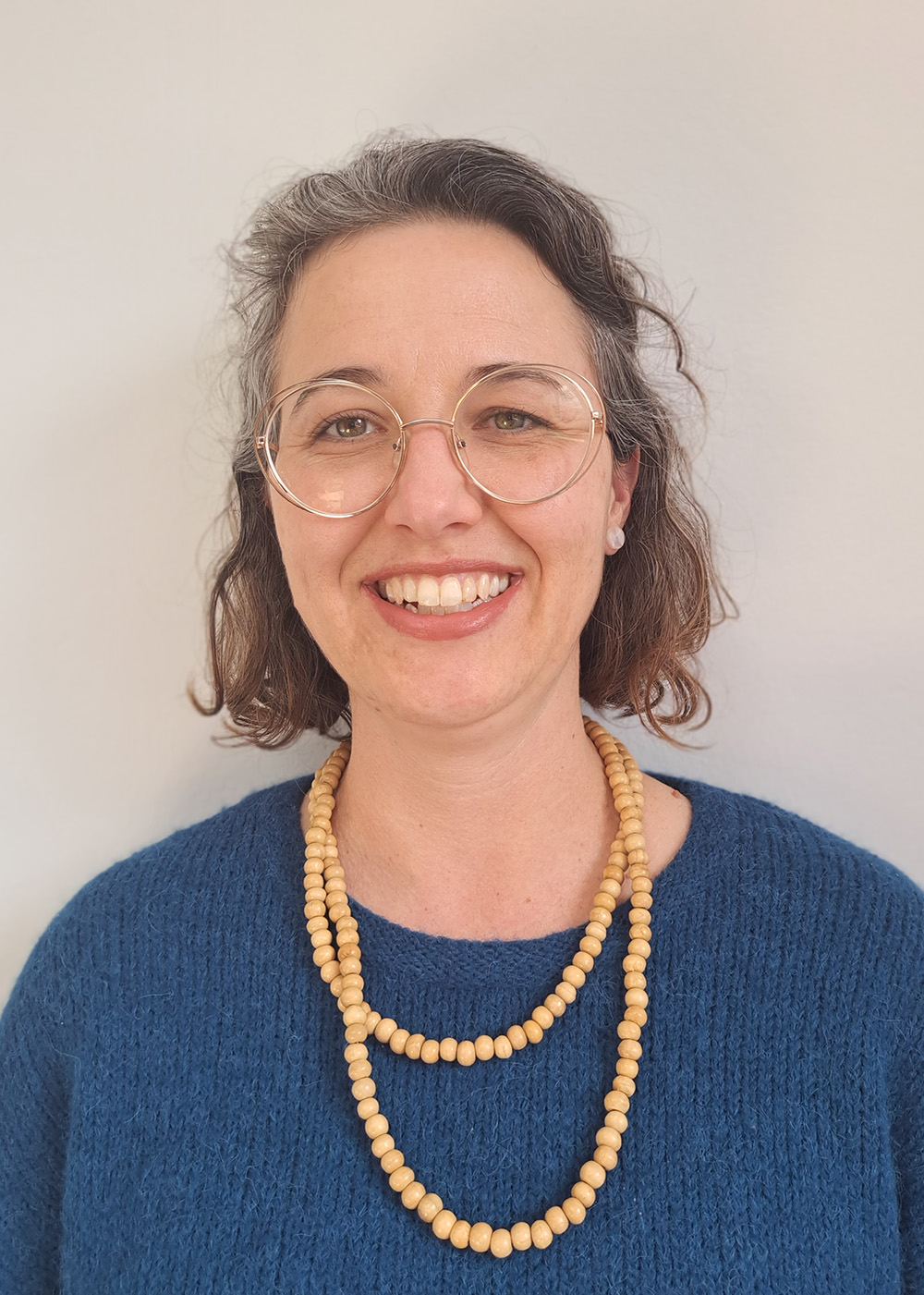 April Roberts-Witteveen is the Manager, Infectious Diseases for Murrumbidgee and Southern New South Wales Local Health Districts, NSW. She has worked in various infectious disease epidemiologist positions in the Commonwealth Department of Health, Hunter New England Local Health District, the Communicable Diseases Branch NSW Health, ACT Health, and the Public Health Response Branch NSW Health.
April Roberts-Witteveen is the Manager, Infectious Diseases for Murrumbidgee and Southern New South Wales Local Health Districts, NSW. She has worked in various infectious disease epidemiologist positions in the Commonwealth Department of Health, Hunter New England Local Health District, the Communicable Diseases Branch NSW Health, ACT Health, and the Public Health Response Branch NSW Health.April enjoys outbreak investigation, maximising the impact of public health activities, and training up-coming epidemiologists, such as MAE scholars.
Dr Patiyan Andersson
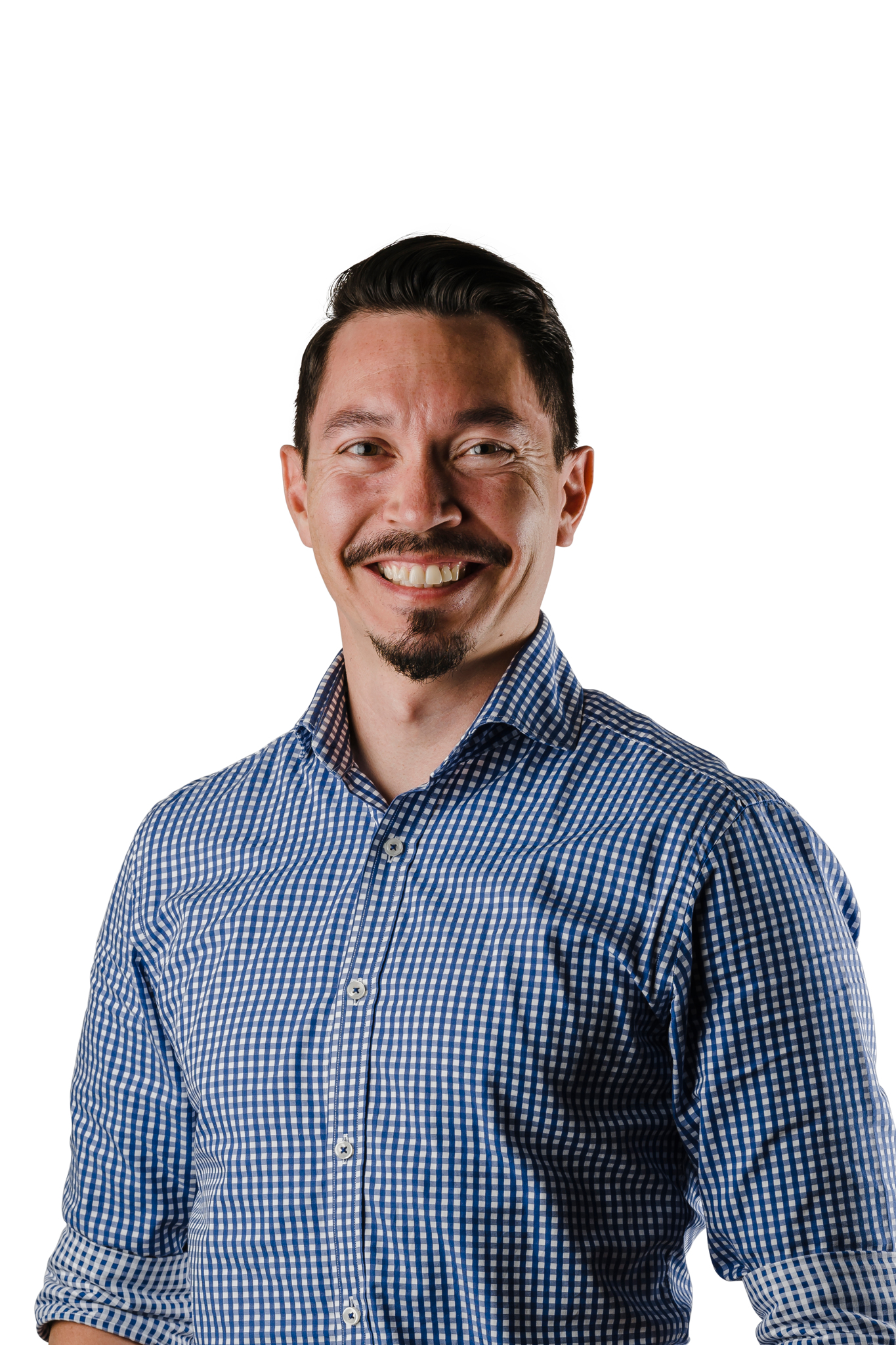 Dr Patiyan Andersson is a genomic epidemiologist at the Microbiological Diagnostic Unit Public Health Laboratory at the Peter Doherty Institute for Infection and Immunity in Melbourne. With a background in molecular biology and genomics, he graduated from the MAE in 2019, and has since worked with the application of pathogen genomics in public health at state, national and regional levels.
Dr Patiyan Andersson is a genomic epidemiologist at the Microbiological Diagnostic Unit Public Health Laboratory at the Peter Doherty Institute for Infection and Immunity in Melbourne. With a background in molecular biology and genomics, he graduated from the MAE in 2019, and has since worked with the application of pathogen genomics in public health at state, national and regional levels.Patiyan is a member of the national analysis team for AusTrakka, Australia’s genomic surveillance platform established during the pandemic by the Communicable Disease Genomics Network. He is also a lead coordinating postdoc in the AusPathoGen Program, a MRFF funded national translational research program integrating pathogen genomics into public health. A key goal of the work has been equitable access to genomic capacity, both in Australia and in the region.
Location
Finkel Lecture Theatre
131 Garran Rd, Acton ACT 2601, Australia
Join Zoom Meeting
https://anu.zoom.us/j/88247652679?pwd=WVRRdFY5MFlvRDlYM1BSZFluemZyZz09
Meeting ID: 882 4765 2679
Password: 241296
-35.2821677, 149.1148979
